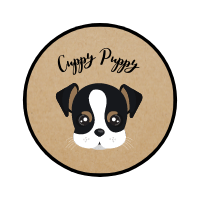Excessive itching is the second most common reason dog owners take their fur babies to the vets, next to gastrointestinal problems. If your dog is constantly licking its feet or belly, it might be a sign of a persistent allergic reaction or fleas.
While it’s entirely normal for your dog to scratch itself once in a while, you’d know if the itch is getting persistent if it is incessantly licking, scratching, biting, and chewing itself to the point of wounding itself.
Causes of Itching
Many causes can trigger excessive itching among dogs, but two main reasons are the recurring culprits.
Dry Skin
One common cause of itching is dry skin. It is very common if you live in areas with low humidity. You can identify this easily if you see that your dog’s hair is covered with dandruff flakes and if its skin itself may be cracked and tough.
Dry skin is caused by environmental factors but is also largely influenced by your fur baby’s diet. It is recommended to choose pet foods that are rich in healthy fat and good oils. They contribute to healthy-looking skin and a lustrous coat.
Conversely, it is best to avoid processed food products that dehydrate a dog’s skin and hair. On top of contributing to itchiness (and amongst many other problems they cause), these processed food products also stimulate increased thirst, which can be challenging for other health reasons.
Allergy
Your dog could also be allergic to certain kinds of foods, grass, mold, or other environmental substances. As a result, your dog may be excessively scratching its back, tail, abdomen, or paws.
If your dog’s itching is be triggered by allergies, skin lesions called ‘hot spots’ may develop as a result. They can develop overnight and can get large very quickly.
In worse cases, you may even see sticky material oozing out of the wound. Many vets believe this “allergy epidemic” is largely due to poor eating habits (particularly caused by the food readily available to purchase for pets), bad hygiene, and a lifestyle out of alignment with their ancestral heritage and biology.

“Okay, What Can I do about It?”
You know what they say about prevention being better than cure, don’t you? And it all starts with understanding…
Before you panic, it is best first to consider the timing of your dog’s itching. If it happens after playing for hours on the lawn or after eating a certain type of food, then it is likely caused by allergies. By being more observant about your dog’s triggers, you can best help them relieve themselves from the itch.
Among the all-natural remedies that help soothe itchy skin in puppies and older dogs alike include Vitamin E, chamomile tea, Epsom salt, oatmeal, apple cider vinegar, aloe vera, olive oil, and lemon.
If you’d like to try Vitamin E, you can break open a capsule and rub the oil directly on your dog’s itchy areas. Not only would the oil provide your dog with instant relief, but massaging their skin also helps warms up its muscles and makes them feel more relaxed.
A chamomile tea solution is also very effective in killing yeast and bacteria on the skin and relieving inflammation on your dog’s sensitive, itchy spots. Make sure it is chilled instead of piping hot not to aggravate the burning sensation on your dog’s skin.
If your dog has open sores all over its body and has been scratching its paws excessively, it would surely benefit from an Epsom salt bath. This relaxing treatment has been proven to speed up the healing time for any small, open sores and provide tremendous relief and comfort.
Oatmeal is also an age-old remedy for itching, inflamed skin. We recommend Organic, gluten-free oatmeal cereal (if you have to find it at your local grocery store) or grind organic, gluten-free steel-cut oats yourself in your food processor for use on its own or mixed in your dog’s shampoo.
You can also put apple cider vinegar into a clean spray bottle for easy use. Applying it to hot spots and open wounds will increase your dog’s blood circulation to aid in healing. It also has anti-bacterial properties that help regulate pH levels in your dog’s skin.
This is particularly effective if your dog has fleas. Yet, it is important to be mindful that vinegar tends to dry the skin, so use it sparingly. One teaspoon of apple cider vinegar is all a 50-pound dog needs. If your dog is bigger, adjust the size accordingly.

Also, did you know that most after-sun creams contain aloe vera gel? That’s because of its soothing properties. Guess what? Dogs could also benefit from the wonders of aloe vera gel, as well. You can rub its gel directly onto its skin to minimize any of the burning sensations it feels.
Olive oil is not just a good alternative for butter when cooking. It can also be a regular supplement to your dog’s food as its health benefits are plenty. Apply one tablespoon to your dog’s food three days a week or apply it directly to the irritated spot.
Rubbing a small teaspoon of olive oil onto your dog’s skin will give them immediate relief while including it in your dog’s regular diet can prevent the itch. The quantity varies depending on how large your dog is.
Lemon also works well in providing instant relief from itching, especially if your dog is itching due to fleas. Just squeeze all of its juice into a spray bottle and then drop the lemon into the bottle. Fill it with water and let it sit overnight.
Once your solution is ready, spray it onto the dog. For some reason, fleas don’t like the lemon. The science of their repulsion may be unknown, but it is proven to work wonders in removing fleas.
While dry skin and allergies are the two most common causes of excessive itching among dogs, they can also be brought about by other more complicated conditions such as hypothyroidism or Cushing’s disease.
Should these all-natural wonders fail to provide your dog with some relief in a day or two, it is best to consult your veterinarian for a treatment plan that can help your dog get rid of the persistent itch altogether.
We understand that it can be costly to do everything supervised by your holistic vet, which fuels our passion for doing our work. We are testing, researching, consulting experts that provide you with the information you find here.
But if at all possible, we recommend consulting with your holistic vet (or if you don’t have one, find one for a consult) so you can tailor the information to your doggie’s particular issues and biology.

